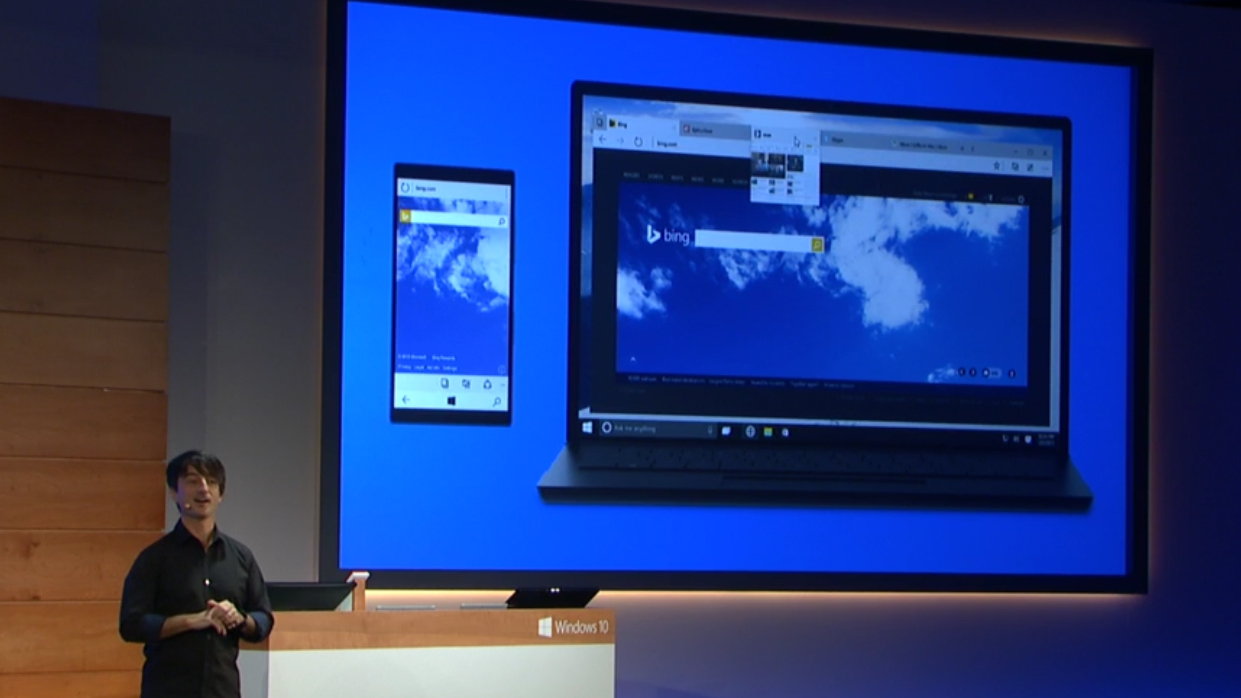Windows 10 is just what an OS should be; that's why no one cares
The new and flashy overshadows the good and solid again

In the lead-up to this week's Microsoft presentation, everyone – including us – referred to it as "the Windows 10 event," and of course the consumer features of Windows 10 were indeed detailed. Today, however, nobody's talking about Windows 10.
That's a slight exaggeration. The specialist tech press – including us! – is poring over the details of Windows 10, exploring what Cortana on the desktop, the Spartan browser and the new gaming features will mean when Windows 10 ships. What's more, Microsoft's decision to make Windows 10 free for the first year is justifiably generating lots of column inches too, as analysts work out what this means not just for consumers but also for Microsoft's business model and its bottom line.
But all of that is overshadowed – not just in the tech press and the mainstream media, but on forums, Reddit, Facebook and Twitter – by HaloLens and the Surface Hub.
This is inevitable and understandable, but it's nevertheless not especially healthy.
More foundation than flash
In the BBC satire series The Thick of It, a government minister tries to recover from an earlier bungle by using a press conference to announce that there's nothing new to announce. His department has been doing the kind of good, solid, dependable work that the press always ignores in favour of attention-grabbing new innovations.
The non-press-conference doesn't go well. That's because however much we might tell ourselves that we're good, meritocratic citizens who care about the things that are really, truly important, we are instinctively drawn to the new and to the shiny.
It's happening with the Windows 10 event too. Windows 10 is actually a remarkably bold OS. It might still prove a fool's errand, but Microsoft's vision for a truly unified operating system across mobile, tablet, desktop – as distinct from Apple's dual-platform, cloud-linked strategy and Google's the-cloud-is-the-platform strategy – is nothing if not audacious.
Sign up for breaking news, reviews, opinion, top tech deals, and more.
Still, it sounds like business as usual, and not even skipping a number does anything to make Windows 10 seem like anything other than just the latest in a long, drudging line of updates to something that provides fundamentally the same interaction paradigm that Microsoft introduced nearly thirty years ago.
Even if it was called something new – a name that signalled this was something daring – who would get excited about it? It's an operating system. Microsoft may well want people to love Windows, but it's very hard to get the general public to understand what an operating system is, never mind summon up any strong feelings about one – and if you're aiming for a positive strong feeling, you've got an even tougher job.
Holograms, though? Holograms, we can get – and can get excited about. Let's gloss over the fact that what Microsoft showed off was only a hologram in the way movies have done "holograms" for years. This is cool, sci-fi-level stuff.
And giant tablets? Even if we think they're a bit daft, we understand what they are, and they look good in a thumbnail for a news story on the front page. The Surface Hub is new (or at least a new iteration of an idea so rare that few people will have seen one) and so it too is something to get fired up about.
Windows, though. Windows is dull. Sure, Windows 10 might be wonderful. Indeed, this new Microsoft has an encouraging energy about it, and there's reason to think it might be. But few people get seriously exercised about an operating system.
Good news is no news
Of course, the irony about that The Thick of It scene is that, while the situation came about by mistake (and naturally the press was furious about being dragged to a non-announcement), the principle was perfectly valid. Teach the media a lesson: stop being obsessed with the new, and respect the value of the well-executed, behind-the-scenes work that everything else depends on. And that's a pretty decent definition of an operating system, wouldn't you say?
Yet here we are; Microsoft announces arguably its most radical plan ever for arguably its most critical product – and makes it free to boot – but we're all talking about a toy that so far is no more real than one of its own fake holograms. We ought to be more impressed with bricks and mortar than smoke and mirrors.